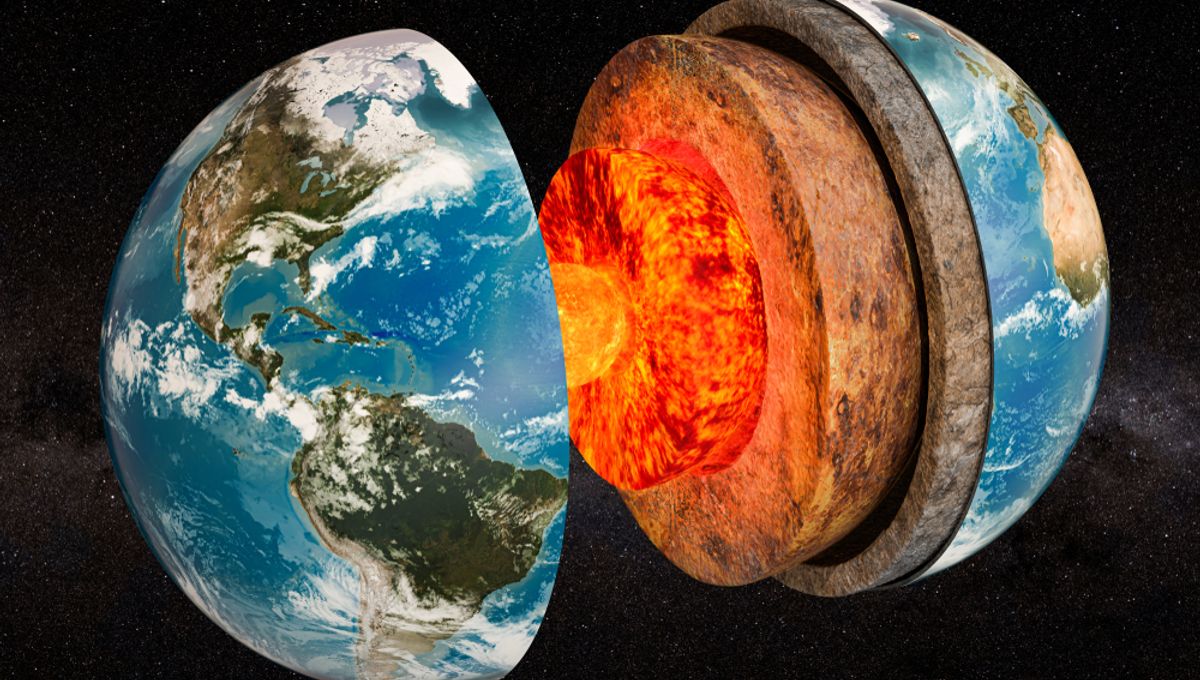
Deep beneath the surface of the Earth, there is a massive reservoir of water. It is estimated to contain three times the amount of water of all the oceans on our surface.
In 2014, a team from the US used 2,000 seismometers to study seismic waves from over 500 earthquakes. By examining the speed of the waves at different depths, the team was able to determine what kind of rocks the waves traveled through before reaching the sensors. They found that some 700 kilometers (400 miles) below our feet in the “transition zone” between the lower mantle and the upper mantle was a rock called ringwoodite.
Ringwoodite only forms under the intense pressure found towards the center of our planet. Only one sample from within the Earth – it has also been found in meteorites – has been discovered, trapped inside a tiny diamond. Ringoodite contains water, not as liquid but trapped inside the molecular structure of the minerals.
“The ringwoodite is like a sponge, soaking up water. There is something very special about the crystal structure of ringwoodite that allows it to attract hydrogen and trap water,” geophysicist Steve Jacobsen explained in a statement at the time. “This mineral can contain a lot of water under conditions of the deep mantle.”
Previous experiments suggested that ringwoodite can contain up to 1.5 percent water, and the seismic waves detected were consistent with the rock below our feet containing water. The team estimated that if just 1 percent of the rock in the transition zone is water, that would mean it contains three times more water than all the oceans on Earth’s surface. This fit with their results.
“If there is a substantial amount of H2O in the transition zone, then some melting should take place in areas where there is flow into the lower mantle,” seismologist Brandon Schmandt said, “and that is consistent with what we found.”
Jacobsen believes that the study contributes to evidence that Earth’s water “came from within,” he told New Scientist.
“I think we are finally seeing evidence for a whole-Earth water cycle, which may help explain the vast amount of liquid water on the surface of our habitable planet,” Jacobsen added in a statement. “Scientists have been looking for this missing deep water for decades.”
The study is published in Science.
An earlier version of this article was published in March 2023.
Source Link: There Is A Huge Ocean Of Water Underneath Our Feet